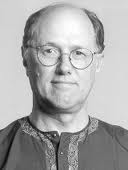Politicians Need to Set an Example by George Wolfe (New revised version)
Three times a year I have the privilege of speaking to high school students from Africa who are visiting Ball State University as part of the Pan-African Youth Leadership Program. My presentation deals with strategies for promoting inter-religious dialog and understanding. Usually about half of the students are Muslim, with the other half coming from Christian backgrounds.
During my lecture, I ask them to share two or three proverbs or wisdom teachings they have learned from either their religious tradition or from an elder in their family or community. At my last presentation, one of the students offered the following saying which would serve as good advice to any politician or public figure.
“If you are going to be the captain of a ship, your behavior must set a good example for others to follow, lest you bring down the entire ship!”
When I heard this, I was reminded of a Chinese proverb attributed to Confucius that I read many years ago: “The virtue of the leaders is like the wind; the virtue of the people is like the grass. And the grass bends when the wind passes over it.”
People are influenced by, and tend to imitate, the words and behavior of their leaders and individuals they admire. We see it in the fashions people chose to wear, in the influence of professional athletes, and in attitudes inspired by politicians. If a nation’s leaders lack virtue, so will their followers. If politicians are corrupt, that corruption erodes the moral behavior of the citizens over which they govern.
Political commentators are quick to blame Russia and President Vladimir Putin for intervening in Ukraine and annexing Crimea. The root cause of the dispute, however, was years of political corruption and economic problems in Ukraine after the break up of the Soviet Union. Corruption had divided the country and weakened public confidence. This led to protests and to the ousting of President Viktor Yanukovych, making the country vulnerable to Russian intervention.
During the 2016 U.S. presidential campaign, I have heard schoolteachers complain about how students have picked up on the hateful, insulting, dishonest, discriminatory and sexual rhetoric that has characterized the political discourse. Many of the public figures in the United States that are capturing media attention are not setting a good example for our young people. They have brought the entire political ship down to a new low for American citizens and also, in the eyes of the entire world. They have revealed to us who we really are, a nation where many people are filled with repressed homophobic and ethnic bigotry.
Our political environment has been poisoned. What we desperately need is an antidote. And rather than blame the media for covering the protests, President-elect Trump should use his new-found influence to emphatically condemn the violence, harassment and racial graffiti that have been seen since the election.
Compare this to the atmosphere that pervaded America in 2015 when Pope Francis toured the United States. We saw him meet with victims of sexual abuse, identify with Latinos, participate in a multi-religious service that included Muslims at ground zero in New York City, and after addressing Congress, he personally spoke to John Boehner, the Speaker of the House of Representatives, asking him to “pray for me.” The Pope’s humility and compassion radiated an uplifting spirit of genuine caring and respect.
Pope Francis brought to the United States an inclusive message, one that our nation again needs to hear, a message that compels us to move beyond mere tolerance to embrace an attitude of non-judgmental acceptance and appreciation. It is a message that is born out of understanding and the willingness to hear the stories and struggles of others. Let us insist and pray that our new government leaders resist the corrupting influence of economic and political power.
George Wolfe is Professor Emeritus at Ball State University and former Director and Coordinator of Outreach Programs for the Ball State University Center for Peace and Conflict Studies. He also chairs the Muncie Interfaith Fellowship, is a trained mediator, and is the author of The Spiritual Power of Nonviolence: Interfaith Understanding for a Future Without War.



